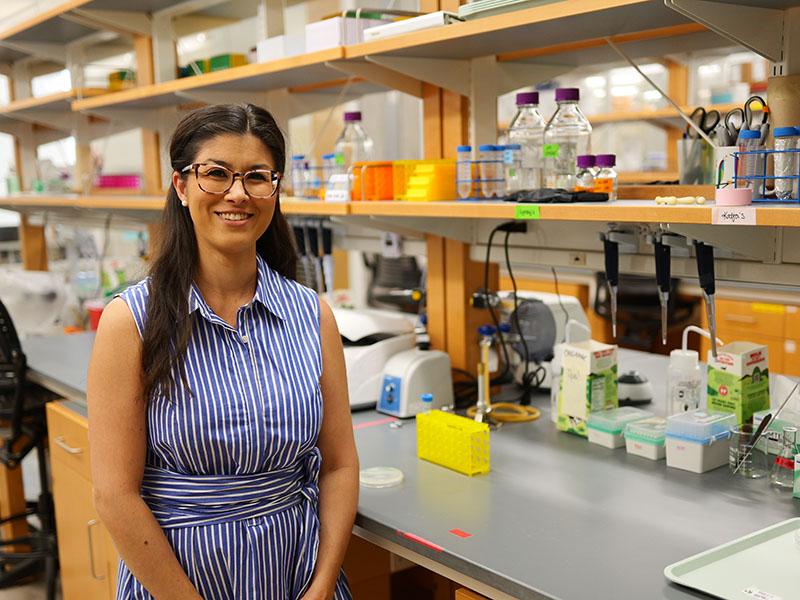Biologist Katja Kasimatis Wins Prestigious ORAU Award to Advance Evolutionary Genetics Research

Katja Kasimatis, an assistant professor of biology in the University of Virginia’s College and Graduate School of Arts & Sciences, has received a 2024 Ralph E. Powe Junior Faculty Enhancement Award from Oak Ridge Associated Universities. The highly competitive award includes $5,000 in direct funding from ORAU, with a match of just over $7,000 from UVA.
“Our research bridges molecular genetics and evolutionary biology — we’re asking big evolutionary questions using powerful genetic tools,” she said.
The grant supports the first phase of a new project in Kasimatis’ lab focused on the evolutionary consequences of sexual conflict — genetic traits that benefit one sex but disadvantage the other.
“My lab studies the genomics of sexual conflict — how differences between males and females shape evolution at the genetic level over time,” she said.
Sexual conflict is a well-established but elusive factor in evolutionary biology. Because most genes are shared between sexes, even traits that help one sex thrive can persist in populations despite causing harm to the other. These dynamics are difficult to detect in nature, but Kasimatis’ lab is using synthetic biology and gene editing tools like CRISPR to take a new approach.
“Instead of searching for hard-to-find conflict genes in the genome, we’re using tools like CRISPR to create synthetic versions and study how they evolve in the lab,” she said.
The project uses the microscopic nematode Caenorhabditis elegans to observe how synthetic conflict genes behave over time in controlled populations. The award will support development of the molecular toolkit needed to build these genes, along with early experiments to test their function.
“The funding will help us build the toolkit we need to create synthetic conflict genes and begin testing how they behave over time,” Kasimatis said.
Kasimatis joined the UVA faculty in 2024 and credited the College and the Department of Biology for helping her identify early-career funding opportunities like the ORAU award.
“I’ve been so grateful for the university’s support — especially how proactive they’ve been in encouraging early-career faculty to pursue opportunities like this,” she said.
Christa Acampora, Buckner W. Clay Professor of Philosophy and Dean of Arts & Sciences, praised the award as a reflection of the school’s commitment to research that spans disciplines and drives discovery.
“Professor Kasimatis is exploring some of the most fundamental questions in biology with remarkable originality and rigor,” Acampora said. “This kind of bold, interdisciplinary inquiry exemplifies our mission to advance discovery and expand the frontiers of knowledge — hallmarks of a leading research institution.”
The award also provides critical support as Kasimatis builds her team and prepares to pursue larger federal research grants.
“It’s incredibly hard to secure federal funding, so this grant gives us the chance to generate the kind of preliminary data we need to compete for larger grants,” she said. “As a new lab, it’s incredibly validating to have our work recognized and supported — it’s both exciting and energizing.”







